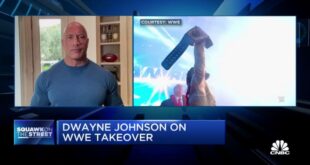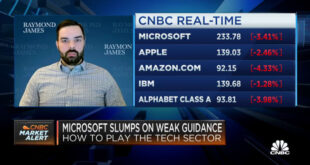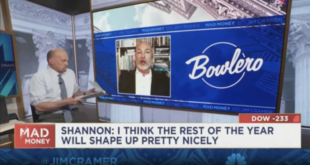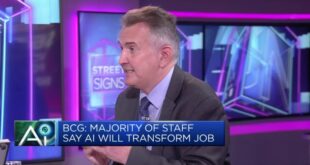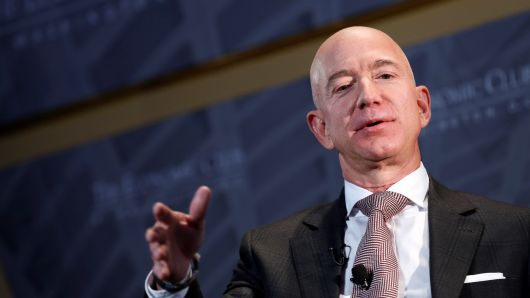
Joshua Roberts | Reuters
Jeff Bezos, president and CEO of Amazon and owner of The Washington Post, speaks at the Economic Club of Washington DC’s “Milestone Celebration Dinner” in Washington, U.S., September 13, 2018.
Sellers and brands may not like it, but Amazon is clearly doubling down on its private label business. This is where Amazon sells its own branded products, or products with third-party brands that are sold exclusively on Amazon.
Private label brands benefit Amazon in many ways. They expand product selection while giving Amazon better profit margins. Supply chain management becomes easier too. It can also pressure bigger brands to cut prices on Amazon to stay competitive.
Last week, CNBC reported that Amazon is more aggressively growing its private label business, having launched a new “accelerator” program for third-party sellers to become part of the “Amazon family of brands,” and a special feature that promotes its own brands at the bottom of competitor listings. That followed recent reports of Amazon having significantly ramped up the number of private label brands sold exclusively on its website.
This comes at a time when sellers and brands are increasingly reliant on Amazon, where almost half of all online sales take place. More Amazon-owned brands mean they will have to directly compete with Amazon for consumer wallet share.
Amazon’s effort to grow the number of private label brands is the clearest sign yet of how far it wants to go in its quest to become the “Everything Store.” But that’s stoking more fear and concern among sellers and brands that sell on Amazon’s website, as they have to go head-to-head with the e-commerce giant in a growing number of categories.
“Amazon’s dominance of the e-commerce sphere has forced brands to adopt an Amazon-first strategy in order to remain relevant, but now those same brands are facing off against the retailer’s own products in the fight for the digital shelf,” Peter Andrews, director of insights at One Click Retail, wrote in report published this week.
Amazon first got into the private label business in 2009, with commodity products such as batteries and USB cables. That slowly expanded to diapers and baby wipes, and now its catalog of exclusive brands ranges from toys and shoes to food and mattresses.
The company currently has over 120 of them, according to a report published by TJI Research. That’s more than a nine-fold increase since early 2016, SunTrust Robinson Humphrey wrote in a note in June. The firm expects Amazon’s private-label business to generate $7.5 billion in sales in 2018 and $25 billion by 2022.
“The goal of [Amazon’s] private-label products is to provide consumers a large selection as well as good prices and quality,” D.A. Davidson’s Tom Forte wrote in a note from June.
 EU News Digest Latest News & Updates
EU News Digest Latest News & Updates
